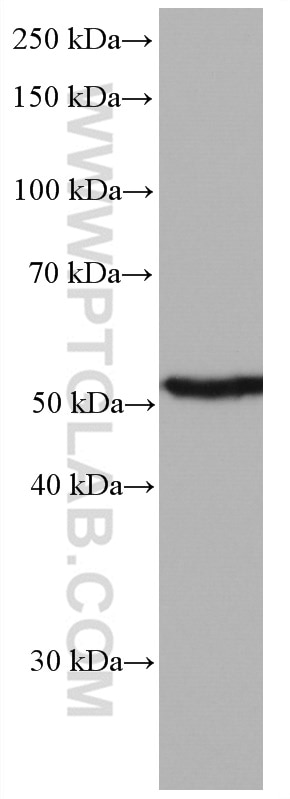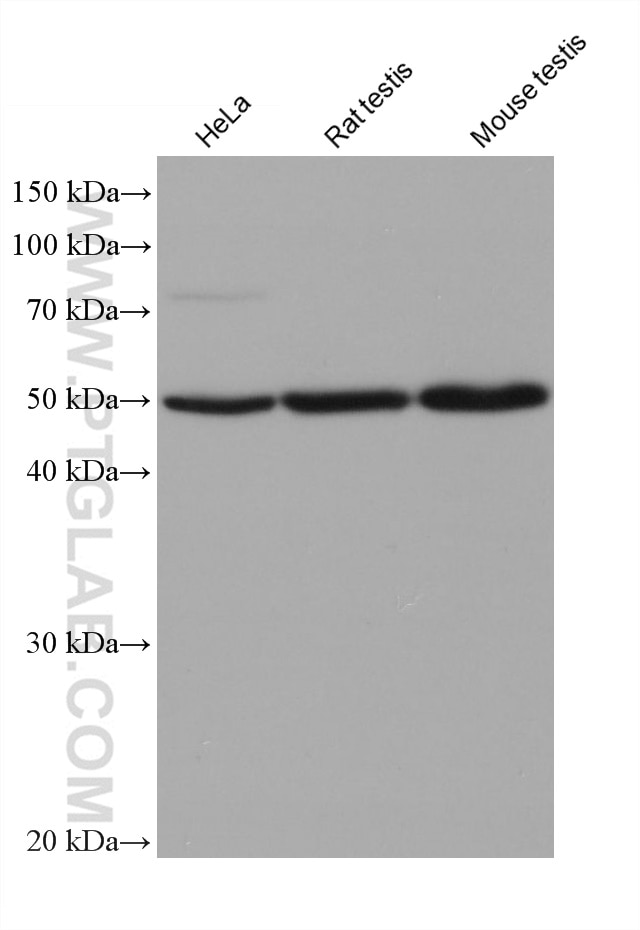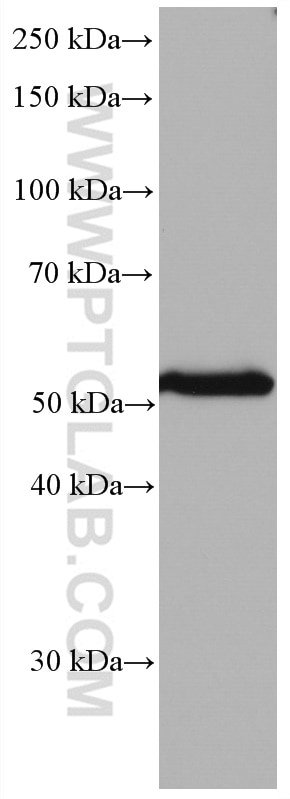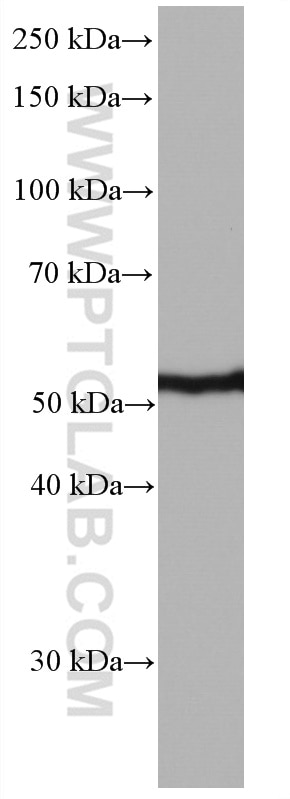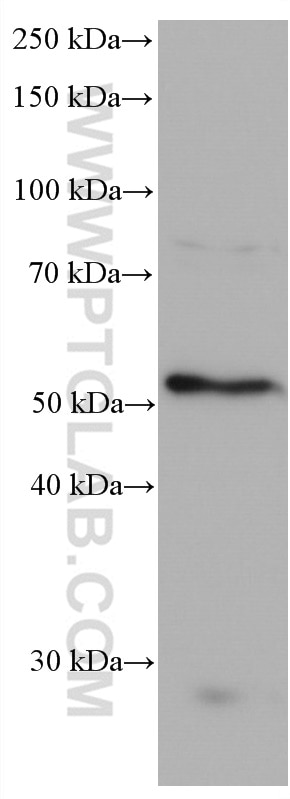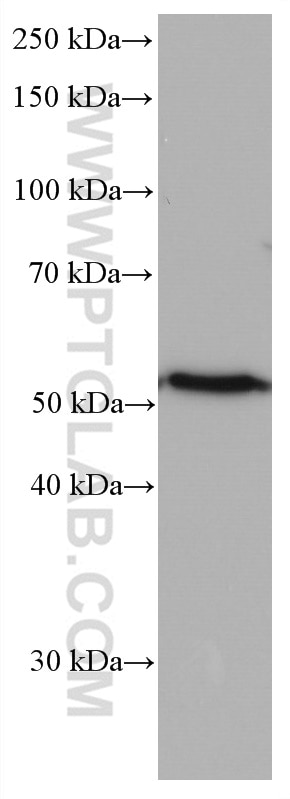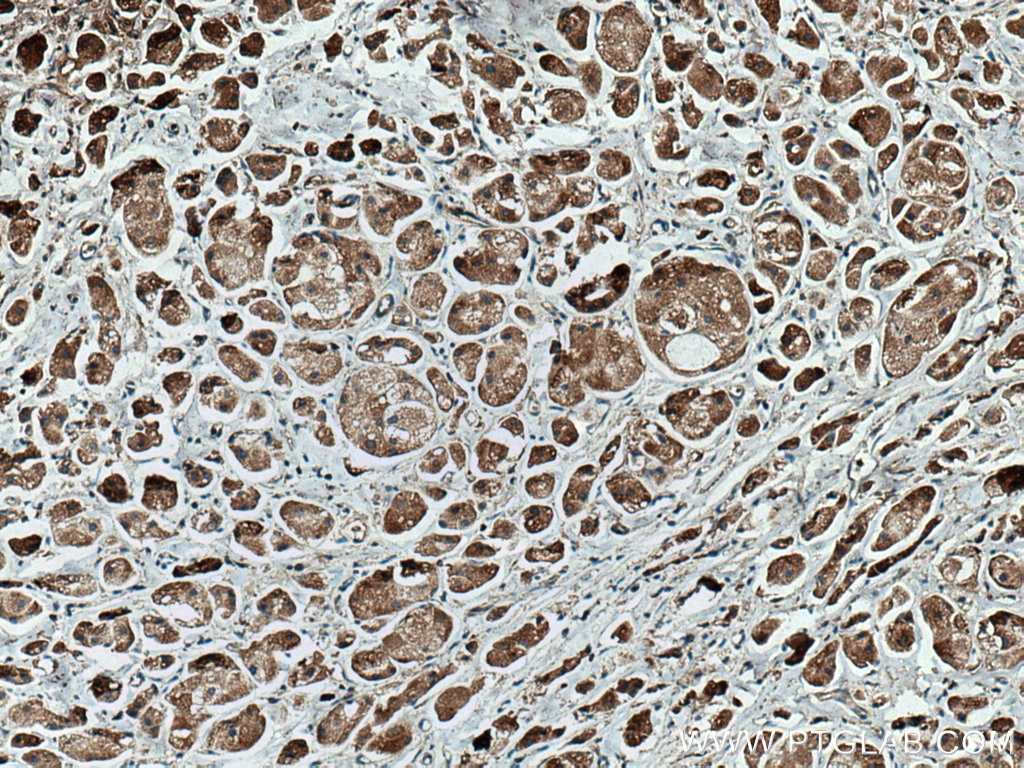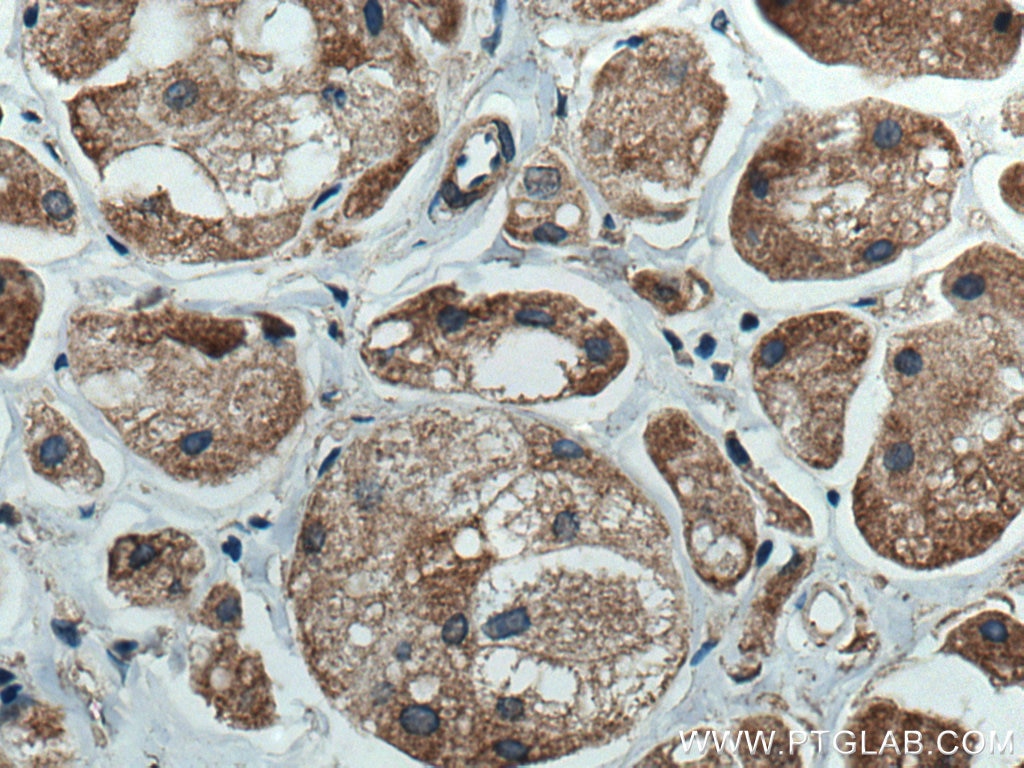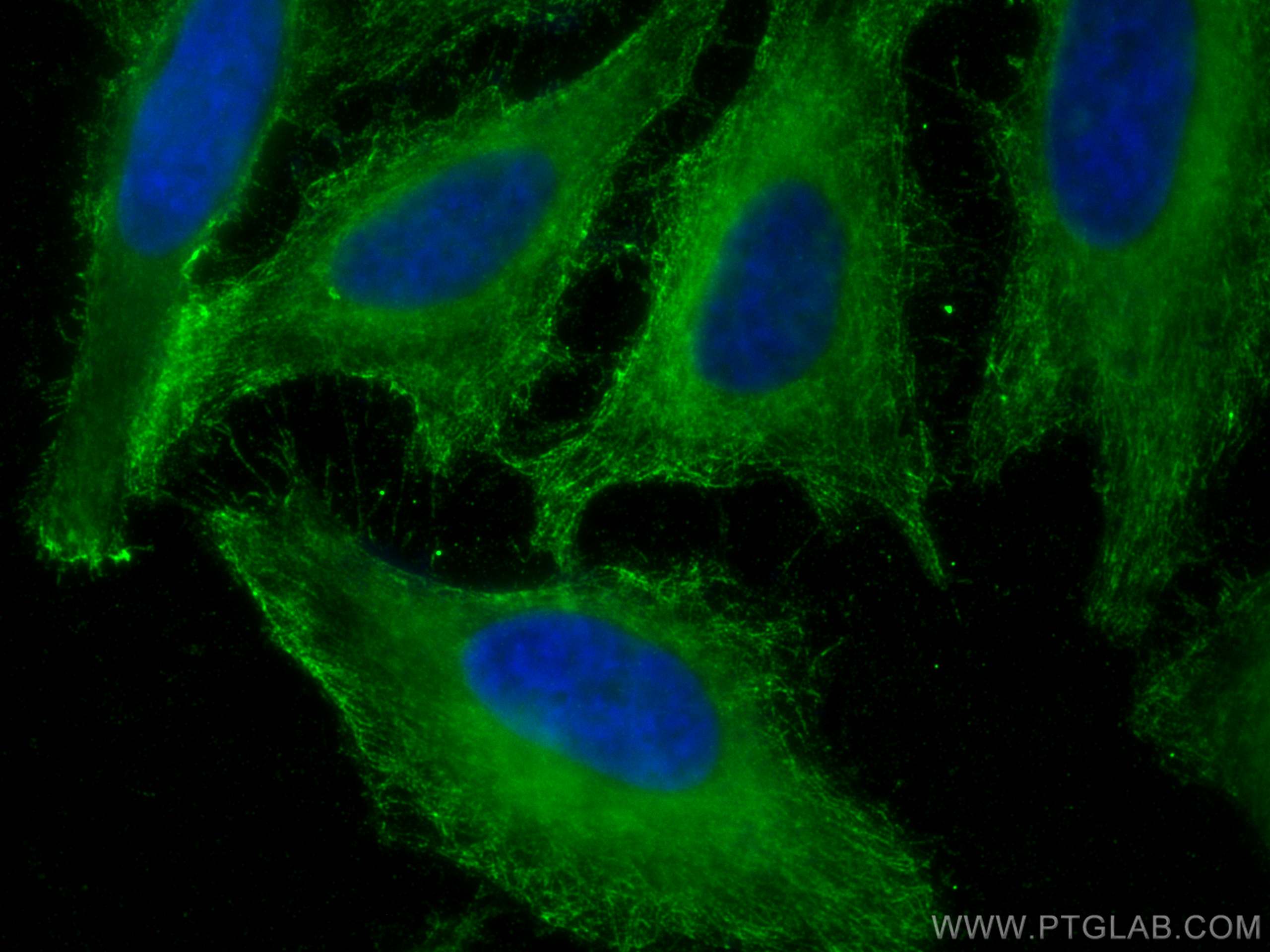Validation Data Gallery
Tested Applications
| Positive WB detected in | human testis tissue, HeLa cells, NCCIT cells, rat testis tissue, mouse testis tissue |
| Positive IHC detected in | human breast cancer tissue Note: suggested antigen retrieval with TE buffer pH 9.0; (*) Alternatively, antigen retrieval may be performed with citrate buffer pH 6.0 |
| Positive IF/ICC detected in | HeLa cells |
Recommended dilution
| Application | Dilution |
|---|---|
| Western Blot (WB) | WB : 1:1000-1:6000 |
| Immunohistochemistry (IHC) | IHC : 1:300-1:1200 |
| Immunofluorescence (IF)/ICC | IF/ICC : 1:400-1:1600 |
| It is recommended that this reagent should be titrated in each testing system to obtain optimal results. | |
| Sample-dependent, Check data in validation data gallery. | |
Published Applications
| KD/KO | See 3 publications below |
| WB | See 14 publications below |
| IHC | See 2 publications below |
| IF | See 2 publications below |
| CoIP | See 1 publications below |
| ChIP | See 1 publications below |
Product Information
66757-1-Ig targets AURKA in WB, IHC, IF/ICC, CoIP, ChIP, ELISA applications and shows reactivity with Human, Mouse, Rat samples.
| Tested Reactivity | Human, Mouse, Rat |
| Cited Reactivity | human, mouse |
| Host / Isotype | Mouse / IgG3 |
| Class | Monoclonal |
| Type | Antibody |
| Immunogen | AURKA fusion protein Ag20096 相同性解析による交差性が予測される生物種 |
| Full Name | aurora kinase A |
| Calculated molecular weight | 46 kDa |
| Observed molecular weight | 46-52 kDa |
| GenBank accession number | BC002499 |
| Gene Symbol | AURKA |
| Gene ID (NCBI) | 6790 |
| RRID | AB_2882103 |
| Conjugate | Unconjugated |
| Form | Liquid |
| Purification Method | Protein A purification |
| UNIPROT ID | O14965 |
| Storage Buffer | PBS with 0.02% sodium azide and 50% glycerol pH 7.3. |
| Storage Conditions | Store at -20°C. Stable for one year after shipment. Aliquoting is unnecessary for -20oC storage. |
Background Information
AURKA(Aurora kinase A), also named as STK6, STK15 or AIK, belongs to the Ser/Thr protein kinase family. This protein may play a role in cell cycle regulation during anaphase and/or telophase by being involved in microtubule formation and/or stabilization. Some recent evidence revealed that AURKA may also be implicated in tumor development and progression. AURKA is expressed highly in testis and various proliferating cells, migrating as a 46 kDa protein in SDS PAGE.Nuclear staining for AURKA is weak or nonexistent in normal tissue but strong in tumor tissue(PMID:19107951).
Protocols
| Product Specific Protocols | |
|---|---|
| WB protocol for AURKA antibody 66757-1-Ig | Download protocol |
| IHC protocol for AURKA antibody 66757-1-Ig | Download protocol |
| IF protocol for AURKA antibody 66757-1-Ig | Download protocol |
| Standard Protocols | |
|---|---|
| Click here to view our Standard Protocols |
Publications
| Species | Application | Title |
|---|---|---|
Front Oncol PUF60/AURKA Axis Contributes to Tumor Progression and Malignant Phenotypes in Bladder Cancer. | ||
Front Oncol Integrated Analysis of Transcriptome Data Revealed AURKA and KIF20A as Critical Genes in Medulloblastoma Progression. | ||
Front Oncol Proteomics and phosphoproteomics of chordoma biopsies reveal alterations in multiple pathways and aberrant kinases activities
| ||
Biochem Pharmacol Palmatine induces G2/M phase arrest and mitochondrial-associated pathway apoptosis in colon cancer cells by targeting AURKA. | ||
Carcinogenesis ARID3A promotes the development of colorectal cancer by upregulating AURKA. | ||
Biochim Biophys Acta Mol Basis Dis Blocking AURKA with MK-5108 attenuates renal fibrosis in chronic kidney disease. |
